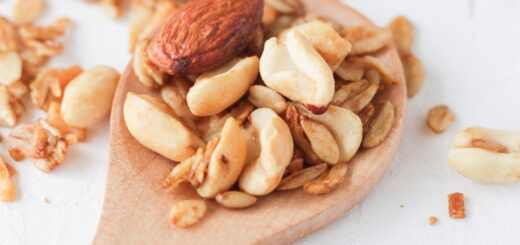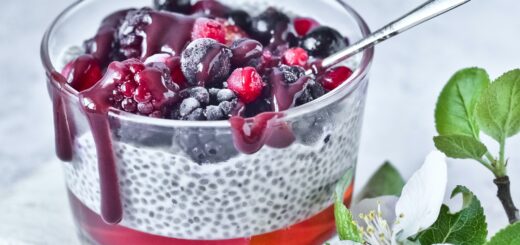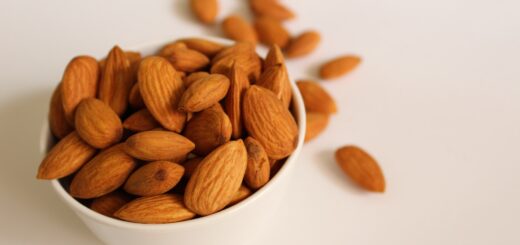Start Eating Peanuts for 4 reasons
Did You Know?
Peanuts are unrelated to tree nuts and instead, a part of the legume family made up of beans and lentils. The peanut plant is thought to have originated in South America but today, the top three producers of peanuts are China, India, and the United States. Texas is the fourth largest peanut-producing state and the only state to grow all four different varieties of peanuts. The four types include Virginia peanuts, Runner peanuts, Spanish peanuts, and Valencia peanuts. Runner peanuts are the most common type made for peanut butter while Virginia peanuts (also known as “cocktail nuts”) are in-shell roasted to be part of a nut mix. Spanish nuts are used in candies, peanut snacks, and oil extraction while Valencia peanuts are sweet with bright red skin and are sometimes eaten boiled. Overall, peanuts are a source of healthy fat, and protein, while also supporting overall health. Research has proved that a diet comprised of a healthy nut variety can result in improved heart health, reduced inflammation, and a healthy weight. Let’s discuss 4 benefits of eating peanuts, and how to add them to your diet
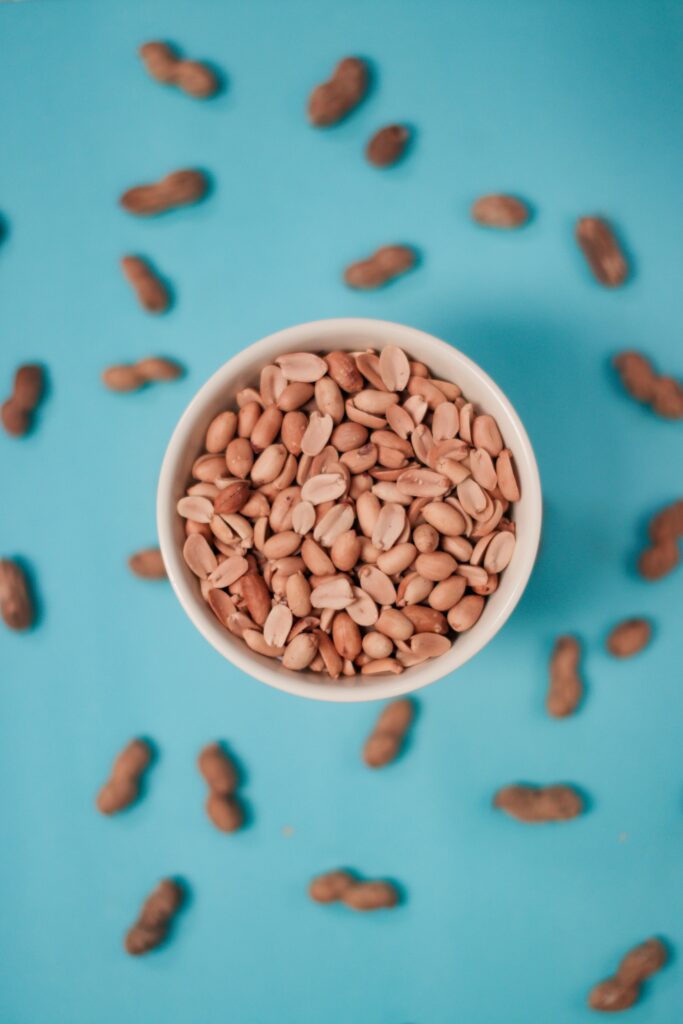
4 Health Benefits of Peanuts
1. May improve Heart Health
Cardiovascular disease is the leading cause of death, responsible for 16% of total deaths worldwide. As a chronic disease, it can result due to two reasons: hereditary risk factors or lifestyle choices. Although hereditary risk factors like age, gender, and family history cannot change, lifestyle choices are the best method to reduce overall risk and extend lifespan. Lifestyle recommendations from the Mayo Clinic include eating a healthy diet, reducing stress, getting regular health screenings, smoking cessation, maintaining a healthy weight, good quality sleep, and regular exercise. A heart-healthy diet involves avoiding foods high in saturated fats found in red meats and full-fat dairy products, and trans fats found in fried fast foods. However, nuts are a food option that contains healthy fats in the form of unsaturated fatty acids, which help reduce cholesterol and inflammation.
One study published in the Journal of the American College of Cardiology found a significant correlation between eating peanuts, and walnuts in reducing the risk of heart disease. The study had a follow-up of over 32 years and researchers found participants who consumed peanuts (2 or more times a week) and ate walnuts (once a week) had a 15-23% lower risk of heart disease. Additionally, researchers also found that participants who consumed nuts 5 or more times a week had up to a 20% lower risk. The study concluded by linking the reduced risk as a byproduct of multiple factors like improved lipid levels and reduced inflammation.
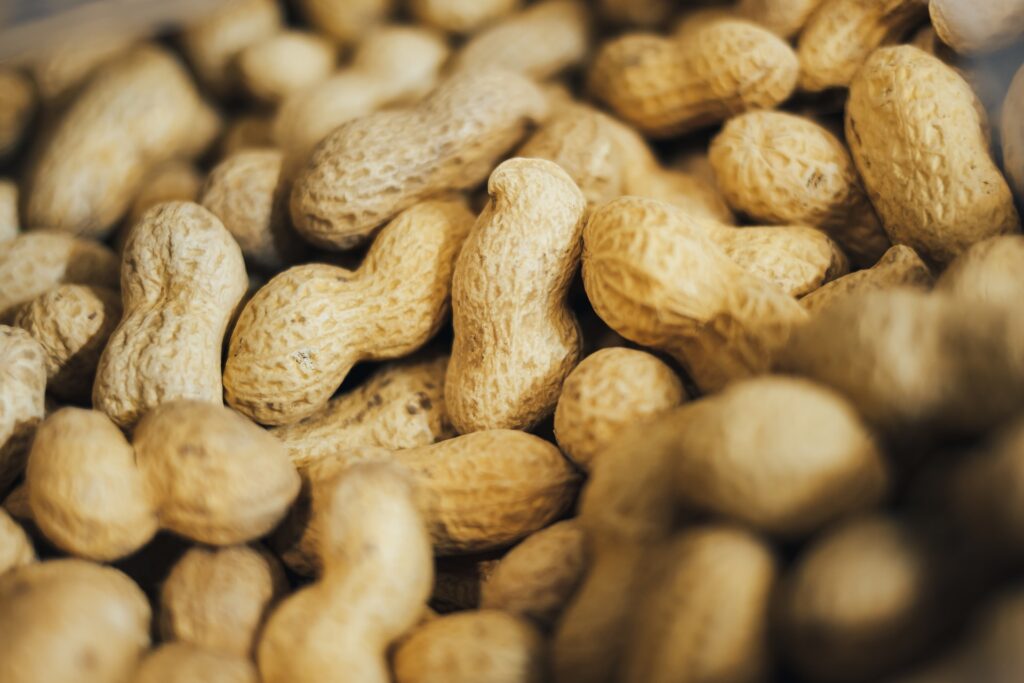
2. May reduce Inflammation
Chronic inflammation is a body process that is associated with an increased risk of chronic disease. More specifically, certain inflammatory biomarkers have also been linked to specific ailments like heart disease and cancer. Peanuts can help reduce inflammation through their antioxidant content of flavonoids and phenols. For example, Resveratrol is one such compound found in peanuts and is associated with a reduced risk of heart disease. One study found that a greater intake of nuts was associated with a decrease in inflammatory biomarkers. This cross-sectional study assessed 5,000 participants through food-frequency questionnaires followed by a collection of plasma biomarkers. The researchers discovered that frequent nut consumption was linked to a healthier inflammatory profile. Inflammatory markers like C-reactive protein (CRP), Interleukin 6, and tumor necrosis factor were assessed and while there was no significant change in tumor necrosis factor (associated with cancer), there was a significant decrease in CRP (associated with heart disease) and Interleukin 6, which is associated with Rheumatoid arthritis, and Crohn’s disease.
3. Rich Nutrients
Peanuts are an energy-dense food packed with antioxidants, fiber, healthy fat, and protein. A recommended serving (1.5oz) has 10.5g of protein, 3.6g of fiber, 21g of fat, and a total of 249 calories. The antioxidants in peanuts are not only within the nut itself, but one study found a source of antioxidants also in peanut skin. The protein in peanuts is a high-quality plant-based protein that is closely equivalent to that of meat and dairy sources. Although peanuts do not contain a high source of fiber, fiber is a necessary nutrient that can be accumulated from different sources. Read more about why fiber is important here. Lastly, healthy fats support heart health by improving cholesterol and reducing inflammation. These nutrients are all important for a healthy lifestyle therefore peanut consumption supports such a goal.
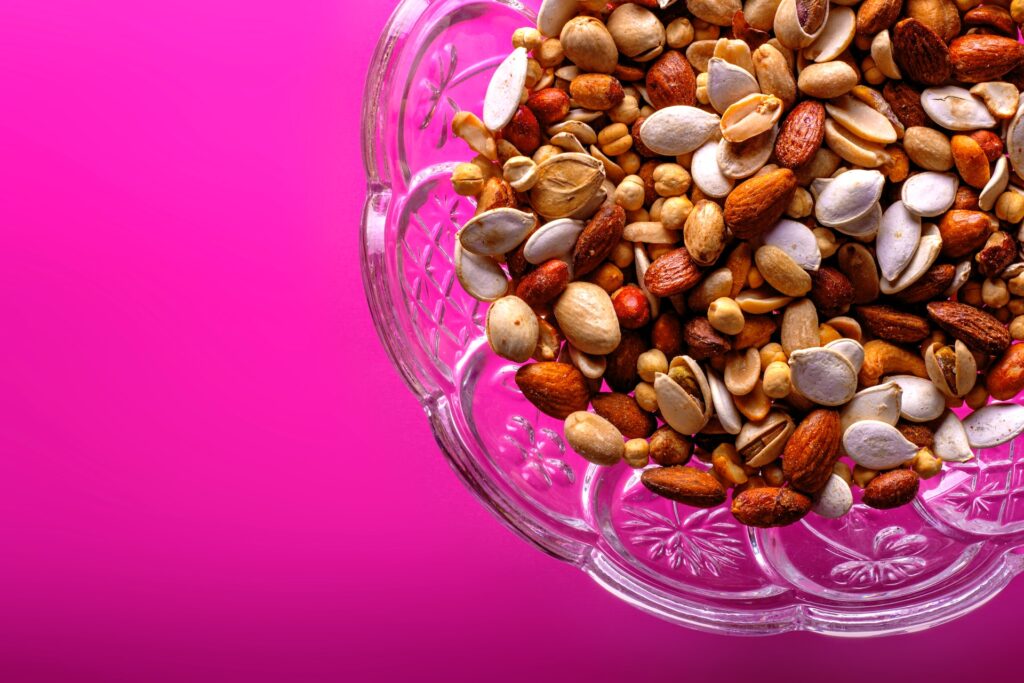
4. Beneficial for weight loss
Peanuts are beneficial for weight loss not only for their nutrient content but also due to a high quality of satiety. One of the biggest indicators of weight loss success is an eating plan that is satisfying, affordable, and easily accessible. One study found that including nuts (in moderation) into a balanced diet did not account for weight gain but improved compliance due to high satiety, which reduced overeating. Another randomized study over 18 months followed overweight adults who consumed a moderate-fat diet vs a low-fat diet. Results found that participants lost more weight and were able to adhere longer to a moderate-fat diet. Researchers concluded to recommend a moderate-fat, Mediterranean-style eating plan as superior for long-term adherence.
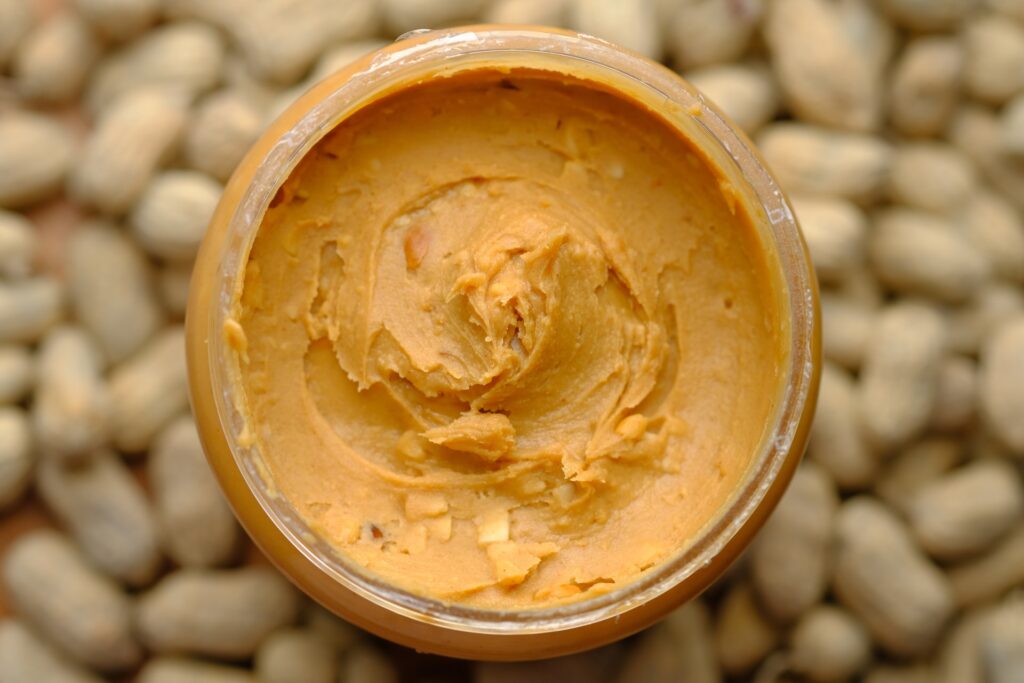
What Should You Do About It?
First, talk to your doctor. Especially if you have a medical history or take certain medications. According to Mayo Clinic, peanut allergy is one of the most common causes of severe allergy attacks. Peanut allergies occur when the immune system inaccurately identifies peanuts proteins as harmful. As a result, the body releases an immune response which manifests in symptoms from mild to severe.
Symptoms include skin reactions like hives, swelling and redness, itching, diarrhea, nausea, and vomiting. In the worst-case scenario, anaphylaxis is a severe, life-threatening response that requires emergency intervention with epinephrine (EpiPen) and a trip to the emergency room. Signs and symptoms include swelling of the throat, lightheadedness, and airway constriction which presents in trouble breathing. Therefore, beware of exposure through direct contact (eating peanut or peanut-containing foods), cross-contact (your food being exposed to peanuts during processing or handling), or inhalation (inhaling dust or aerosols containing peanuts).
Otherwise, I encourage you to enjoy peanuts in all forms to support an overall healthy lifestyle. Always compare labels to choose a product with no added tropical oils like palm oil or added sugar. The AHA recommends a serving of nuts to be 1.5oz or 2 Tbsp of nut butter.
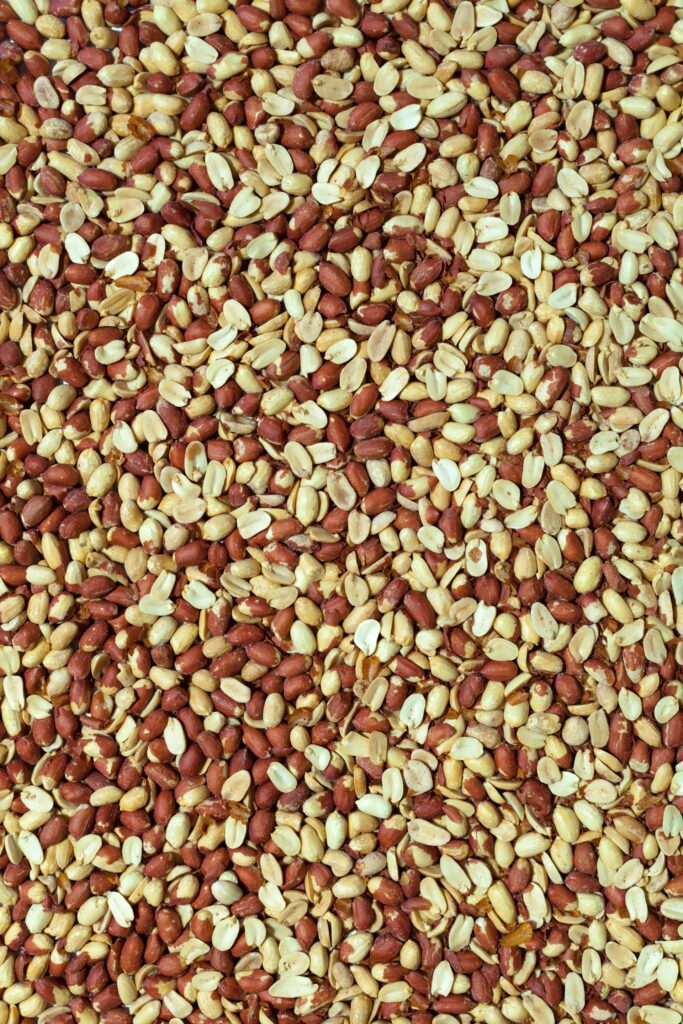
How To Make It SMART
SHORT- Commit to including peanuts and peanut butter into your diet. Surprisingly, peanut butter is a common staple in the U.S. but not in other countries. Therefore, don’t be surprised if you cannot find peanut butter abroad. You might have more luck finding the nut instead
MEASURABLE- Peanuts should be consumed as part of an overall healthy lifestyle. If you want to lose weight, peanuts may be a good addition to your diet for satiety, which is important when controlling food consumption
ATTAINABLE- This should be something worth implementing especially as a choice to support healthy wellbeing. Peanuts will not cure one ailment, but they support health by preventing the development of chronic diseases. I often talk about the benefits of antioxidant-rich foods as an important component of a healthy diet. Last week I wrote about strawberries here
REASONABLE- Approximately 56% of U.S. peanut consumption is from peanut butter and compared to other nut options, peanuts are the most affordable and readily available. Peanut butter has a good shelf life and therefore should be a pantry staple.
TIMELY- Commit to including peanuts or peanut butter into your diet to support overall health. Beware of serving sizes because most nut products are calorically dense. A serving of nuts is 1.5oz and one serving of nut butter is 2 Tbsp.
Remember, choosing health is a lifelong journey and commitment, not a quick fix
As always,
Love yourself in health, one day at a time

